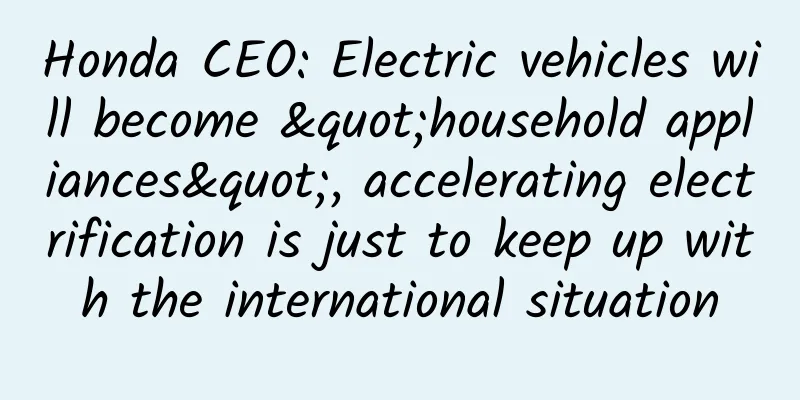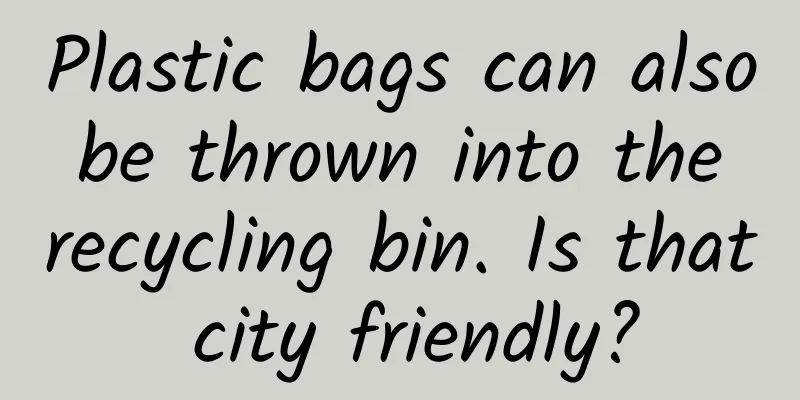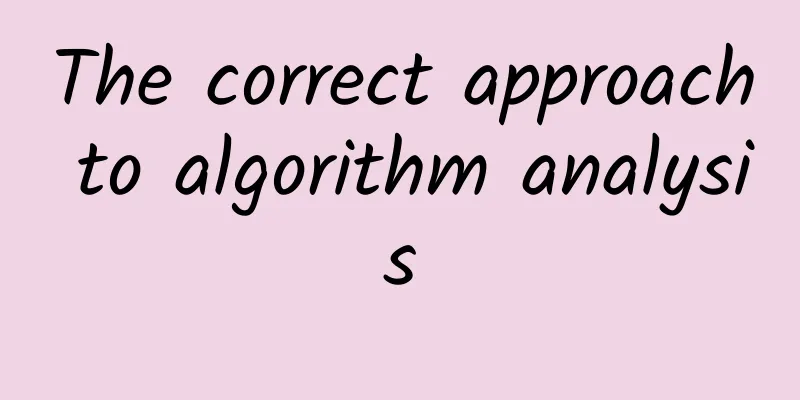With 6,500 units sold in half a year and a loss of 82 million euros, why is Stellantis still not interested in selling Maserati?

|
The century-old Martha was destroyed by micro-business. There are many jokes like this in the Chinese automobile market, including but not limited to "A century-old Ford, ruined by a certain An", "A century-old Mercedes-Benz, ruined by X Automobile", etc. However, the only brand that has been ruined by "WeChat business" is Maserati. Maserati has been involved in such jokes probably because its trident logo is so recognizable. A few years ago, various micro-businessmen competed to take photos with it and fabricated an "inspirational" story that "a micro-businessman angrily mentioned Maserati, became rich and beautiful overnight, and reached the peak of his life." It is of course a joke that Maserati was ruined by micro-business, but it is also an indisputable fact that its sales have continued to decline in recent years. In the first half of this year, Maserati's sales volume dropped from 15,300 to 6,500, with a loss of 82 million euros. It is expected that the annual sales volume will be around 12,000, and the profit margin will drop to negative double digits. In the Chinese market, the hometown of micro-business, its sales volume in the first half of the year was only 681. The three most famous models, Ghibli, Levante and President, will stop updating their versions after 2022. Back then, the fact that Maserati was "ruined" by WeChat businessmen at least proved that it was a symbol of wealth and status; but now it seems that the situation may be even worse, because even WeChat businessmen can't remember this brand anymore. A luxury car without "news" and "personality" is very dangerous. What to do? Rumor has it that Maserati's parent company, Stellantis Group, has come up with a good idea - sell this sickly "white, rich and beautiful" who can't lift anything with her hands or shoulders. Why sell it? Stellantis is not having a good time! The financial report shows that the group's net revenue in the first half of the year was 85.017 billion euros, a year-on-year decrease of 14%; net profit was 5.647 billion euros, a year-on-year decrease of 48%. After the financial report data came out, Stellantis Group CEO Carlos Tavares quickly issued a statement saying that he would not hesitate to cut underperforming brands from his huge product portfolio. Since Maserati suffered a loss of 82 million euros in the first half of the year, this statement was quickly linked to Maserati and evolved into a rumor that "Stellantis Group will sell Maserati." At the same time, this rumor was mixed with another rumor. As early as mid-July, local Italian media reported that the Italian government was considering using legal means to "take over" the discontinued car brands of the Stellantis Group and transfer their usage rights to Chinese car companies. Recently, Italian Prime Minister Meroni visited China, and the two countries finalized cooperation in the automotive field, which increased the credibility of this rumor. As a result, the joke "Stellantis Group wants to get rid of Maserati, and Chinese car companies have an opportunity" was fabricated and widely circulated on the Internet. But the Stellantis Group soon issued another statement, saying it had no intention of selling the luxury car brand Maserati, nor would it merge Maserati with other Italian luxury car groups. At the same time, the statement also reiterated its commitment to Maserati's bright future. In fact, a little rational analysis will reveal that it is almost impossible for the Stellantis Group to sell Maserati. Selling off high-quality assets to tide over difficulties is indeed a common practice for many automakers. The most familiar case is Geely Automobile's acquisition of Volvo from Ford in 2010. Ford Motor Company was in a precarious situation in 2009. Affected by the 2008 US financial crisis, Ford Motor Company suffered a staggering loss of $14 billion in 2009. Volvo, which Ford acquired for a high price of $6.45 billion in 1999, has never made a penny from Ford. Under such circumstances, Ford decided to abandon the car to save the driver and sold Volvo to China's Geely Automobile at a low price of US$1.8 billion to focus on the development of the Ford brand itself. But the current Stellantis Group has not encountered the crisis that Ford Group did back then. It is the world's fourth largest automobile group. Although its net profit was halved in the first half of the year, it was still 5.647 billion euros, far from the point where it needed to cut off its arms to survive. Of course, it is a fact that Maserati's sales have declined and turned from profit to loss, but even if the Stellantis Group wants to shut down unprofitable brands, there is no need for Maserati to be the first one. It has 14 car brands. Compared with Maserati, Lancia, DS and Alfa Romeo are in worse operating conditions and their brands are more niche. If they really have to be shut down, these brands need to stop losses more than Maserati. Stellantis Group owns 14 brands including Fiat, Opel, Peugeot, Citroen, Jeep, etc., but Maserati is the only luxury brand with global influence and stable performance. Selling Maserati because of losses in half a year is too radical and unreasonable. In fact, the Stellantis Group is indeed facing certain difficulties at present, but selling off brands is not its preferred means of getting out of the predicament. Tang Wei Shi prefers a "light asset" model. Among the many heads of automobile groups, Tang Weishi's style is relatively radical. Tang Weishi became the CEO of PSA Group in March 2014. In 2019, he worked hard to promote the merger of PSA Group and Fiat Chrysler Group to form Stellantis Group. In October 2022, Tang Weishi announced that he would implement a light asset model in China and cancel Chinese factories. In the following two years, Tang Weishi did what he said. In 2022, he transferred the second factory of Dongfeng Peugeot Citroen Automobile to Dongfeng Honda. In October of the same year, GAC Fiat Chrysler filed for bankruptcy. In October 2023, he sold the third factory to Dongfeng Group for 1.7 billion yuan. If Tang Wei Shi wants to "reduce the burden" on the Stellantis Group, he has many ways to do so, and there are also many non-performing assets that can be sold. The knife of "cutting costs" will never be cut on high-quality assets like Maserati. On the other hand, even if it is to get out of the predicament or achieve electrification transformation, the Stellantis Group does not need to take actions such as "selling Maserati". Seeking shares and technical cooperation is also a good way. On July 31, Merloni ended his visit to China, during which he signed a number of cooperation agreements with China. He also expressed his hope to deepen cooperation with China in the field of electric vehicles. Industry insiders such as Italy's National Automobile Manufacturers Association President Vavassori believe that the goal of the cooperation between the two sides is to bring new energy vehicle production to Italy, and hope that Italian automobile companies will be prepared for this. With such a background, there is considerable room for imagination in the cooperation between Stellantis Group and Chinese manufacturers. In terms of brand influence, Maserati is definitely impressive. If the Stellantis Group really wants to turn Maserati around or promote its electrification transformation, it can do so through cooperation rather than selling. There are actually quite a few such cases. On May 18, 2023, Geely Auto announced that it would increase its stake in Aston Martin to 17%, and the two parties will cooperate in areas such as electric vehicles; earlier in 2017, Geely Auto also acquired a 51% stake in luxury sports car brand Lotus. Now Lotus' electrification transformation has begun to show results. Maserati can also engage in such cooperation. It needs to maintain its high-end positioning, and at the same time it needs to increase its investment in the field of new energy. If it cooperates with a Chinese manufacturer, it may be able to achieve this goal without "selling itself". Chinese manufacturers' acquisition of famous foreign brands was once seen as a symbol of the strength of domestic brands. Lenovo's acquisition of IBM in 2004 and Geely's acquisition of Volvo in 2010 are both typical cases. However, these are the products of special backgrounds. Although the Stellantis Group has difficulties, it will not sell off core assets such as Maserati. Moreover, Chinese manufacturers are no longer what they used to be. China will become the world's largest automobile exporter in 2023, and has passed the stage of relying on the story of "a snake swallowing an elephant" to prove itself. If Maserati really has the intention to cooperate, wouldn't it be great if Chinese manufacturers calmly put forward their technology and everyone worked happily on new energy vehicles together? As a winner of Toutiao's Qingyun Plan and Baijiahao's Bai+ Plan, the 2019 Baidu Digital Author of the Year, the Baijiahao's Most Popular Author in the Technology Field, the 2019 Sogou Technology and Culture Author, and the 2021 Baijiahao Quarterly Influential Creator, he has won many awards, including the 2013 Sohu Best Industry Media Person, the 2015 China New Media Entrepreneurship Competition Beijing Third Place, the 2015 Guangmang Experience Award, the 2015 China New Media Entrepreneurship Competition Finals Third Place, and the 2018 Baidu Dynamic Annual Powerful Celebrity. |
<<: ASUS POSEIDON-GTX 980Ti Graphics Card Review: Belief and Performance
Recommend
A 39-year-old vegetarian internet celebrity in Russia has passed away. He used to insist on eating only fruits. Is it good to be a vegetarian? Here are 11 common misconceptions
According to media reports, a Russian vegetarian ...
Tesla's FSD software price will increase to $10,000, and Musk said it will continue to increase in the future
If Tesla's power management technology is the...
Is there something wrong with my eyes? Why do these weird stripes appear when I take photos of a TV screen with my phone?
When we pick up our phones or cameras and shoot a...
What is content marketing? Let me help you think about the three core issues of content marketing
This article will take you through three core iss...
The most comprehensive guide to short video distribution on Tik Tok, Kuaishou, etc.!
In the Internet age, short videos are king. 2018 ...
Operational promotion: 4 general methods and techniques to increase followers!
Today, we will share 4 general tips for increasin...
Gastroesophageal reflux, a holiday disease that cannot be ignored
To prevent or alleviate gastroesophageal reflux d...
Bilibili is going public in the United States. Let’s talk about the “three-step” strategy for advertising on Bilibili!
Most marketers who are eager for a young user bas...
The only semi-annual review of WeChat Mini Programs personally compiled by Zhang Xiaolong!
This will be the only article that deeply interpr...
Why do you rebound after losing weight? Does your body remember that you were fat?
Recently, according to the National Health Commis...
How to operate Baidu Screen Domination? How to make money with Baidu screen domination promotion?
I've been busy with a project recently and ha...
The latest news on retirement salary adjustment in 2022: How much will it increase?
This year, the State Council issued the "14t...
Peach Bunny Alliance short video shooting and editing skills
Introduction to Tao Xiaotu Alliance's short vi...
iOS 17.3 battery life test for various devices, a retirement version!
This week, Apple released the official version of...
Subsidy standards for rural village cadres over 60 years old in 2022: How much per month? Attached is the latest salary standard for village cadres!
In rural areas, village cadres are the leaders of ...









